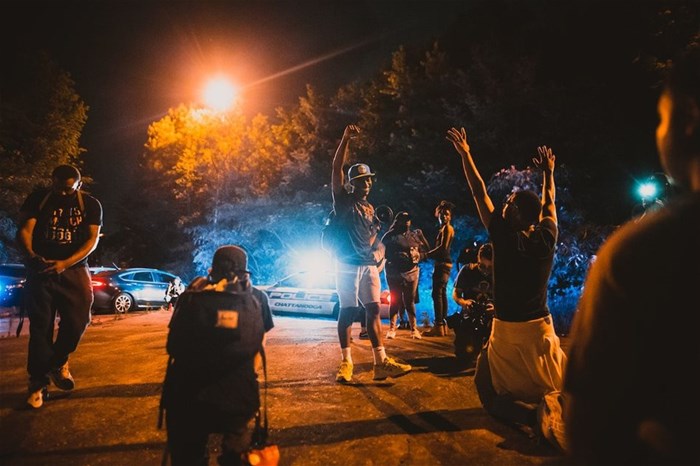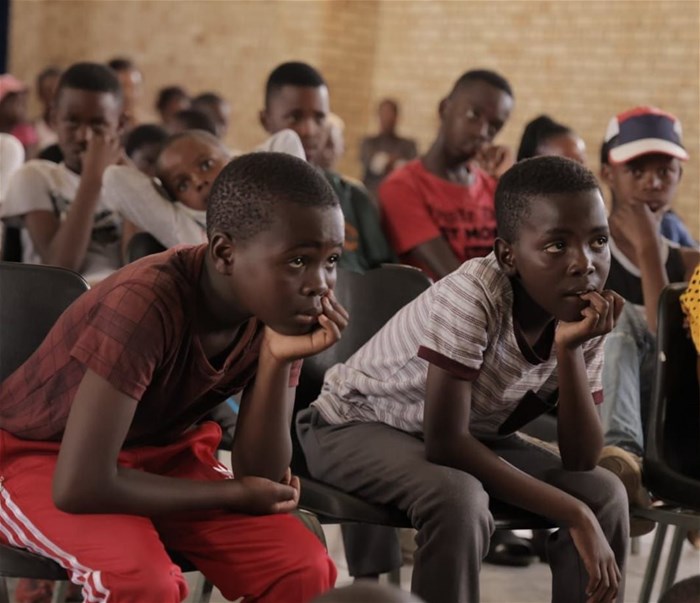
Hollywood blockbusters such as Safe House, Avengers: Age of Ultron, Doomsday, Blood Diamond and many more, were shot on South African soil.
Just last year, Tom Cruise was one of the latest foreign filmmakers to arrive in South Africa to reap the many benefits of filming in the country, with the action film star shooting the latest instalment of Mission Impossible in locations like Hoedspruit, KwaZulu-Natal and Cape Town.
According to the Department of Trade, Industry and Competition, South Africa offers a base of 25% filming incentive for international film and TV productions, with a cap of $2.8m, rising to 30% for productions that also undertake post-production work.
With such perks, it is for this reason that the Gauteng Film Commission (GFC) was established with the aim to cultivate, facilitate and enhance an environment that allows the film and television industry to play a meaningful role in the socio-economic development of Gauteng, one of the main national hubs in South Africa.
"With a strong screen culture and year-round film festivals, Gauteng provides support services, production companies, equipment, supplies, and facilities, casting and crew, and post-production, research and development services," says Nano Mothibi, senior manager of marketing and communications at GFC.
"Local crews are world-class and professional, and have gained their experience on a large number of local and international television series, commercials, music videos, and an increasing number of international feature film productions," adds Mothibi.
When asked what are the challenges faced by the film industry when choosing a location, Mothibi comments that "the industry has expressed reservations about the permit application process. Processing times for permit applications could be shortened."
To overcome this, Mothibi says the GFC continues to "engage with municipalities and authorities to find ways to cut red tape and make permit application processes less onerous. The industry must also take the initiative to avoid such challenges. We encourage production companies to plan for the time frames and documentation that will be required of them, because non-compliance can make these processes tedious and lengthy.
It is also recommended that the industry become more organised in order to work closely with the GFC to ensure that permit processes are aligned with their goals.
Furthermore, given the reality of the situation, we must recommend that film productions have multiple options for locations to avoid production delays caused by permit approval delays due to strict restrictions on some heavily regulated buildings."
Another issue that affects not only Gauteng, but the entire country is a lack of security. As South Africa's economic strength deteriorates, crime will only worsen, and security measures must find a way to keep up.
Mothibi notes that "the filming industry is in apprehension following the attack and sexual assault of the crew while shooting a music video on location last year July. Fighting against crime is an ongoing challenge for us in the film industry".
In addition, the industry has also expressed dissatisfaction with the difficulty of gaining access to various government buildings and structures, such as hospitals and legal courts.
GFC has been engaging with municipalities and authorities to find ways to cut red tape and make permit application processes less onerous and the industry as a whole must also take the initiative to avoid such challenges.
"We encourage production companies to plan for the time frames and documentation that will be required of them because non-compliance can make these processes tedious and lengthy," adds Mothibi.
It has been recommended that the industry become more organised in order to work closely with the GFC to ensure that permit processes are aligned with their goals.
Given the reality of the situation, GFC further recommends that film productions have multiple options for locations to avoid production delays caused by permit approval delays due to strict restrictions on some heavily regulated buildings.

Despite these challenges, there are several perks of filming in Gauteng including; access to some of the best locations; assistance with permit applications with the Johannesburg Metro Police Department (JMPD); ample accommodation throughout the province that caters to all tastes and budgets; access to enticing incentive programmes offered by Department of Trade and Industry (DTI), the Industrial Development Corporation (IDC), as well as the National Film and Video Foundation (NFVF); access to funding and film industry supporting agencies such as GFC and NFVF and an access point for most local and international productions through OR Tambo International Airport.
As a destination of choice, Mothibi says: "We are collaborating with industry, government agencies, and other stakeholders to identify world-class locations in Gauteng and to assist with permit applications. We have also provided a platform for Gauteng business owners of accommodation, transportation, tourism, and concierge services to list their businesses on our website. This ensures not only easy access to filming locations, but also all-around concierge services for the filmmakers."
The GFC supports events such as Locations Africa, a conference discussing the filming and shooting locations, and skills available on the ground in Gauteng, South Africa and the rest of the continent.
Additionally, GFC will be launching the Film Friendly campaign which aims at guaranteeing that Gauteng’s locations are welcoming and suppliers cost-effective, all participating partners have committed to film-friendly policies and practices.
The campaign strategy is the result of extensive consultation with the film industry both locally and internationally as well as the Gauteng Film Partnership, a representative industry body which advises the GFC on industry matters.
There are over 30 organisations who are active partners and have committed to the Film Friendly Gauteng pledge, which commits partners to:
Over the recent festive season, the #FilmFestive was launched with the goal of entertaining, film-related gift-giving, and educating the youth, specifically from Gauteng's peri-urban areas.
The campaign was a starting point in the implementation of the Gauteng Premiere, Panyaza Lesufi’s vision to take youth development and entrepreneurship to townships, informal settlements, and hostels (TISH).

The #FilmFestive campaign, also known as the #MonateDecember, served as an alternative to the youth being involved in disruptive behaviour and substance abuse during the season by bringing in filming and festive spirit to the communities.
Through this campaign, the GFC was able to connect with the communities and was able to determine the gaps that needed to be bridged as far as youth development was concerned.
In line with the Gauteng Premiere, Panyaza Lesufi’s mandate to take youth development and entrepreneurship to Townships, Informal Settlements, and Hostels (TISH), Mothibi adds: "The Monate December campaign was the first of many initiatives GFC would implement to drive Premiere Lesufi’s objective. Even in our annual goals, the TISH vision remains a top priority."
Following the unfortunate postponement of the GFC Discover Summit, which was scheduled for 18-21 October 2022, the GFC has had an opportunity to redesign the planned inaugural Summit to include the TISH mandate. Not only will this benefit the Gauteng TISH areas' film industry, but it will also provide opportunities for service providers and use of resources from all communities across all corridors, thereby stimulating the local/township economy."
Furthermore, it was brought to the GFC's attention that, even in these digital times, not everyone has access to related services (as all funding applications are completed online), and they have taken steps to improve accessibility even in disadvantaged areas. GFC is working to install self-service facilities in libraries and educational institutions, primarily in peri-urban areas.
The film industry in Gauteng is critical to the development of a "smart" economy, a creative economy that attracts cultural workers and quality jobs while also contributing to economic growth and social development. Gauteng is well on its way to becoming an international location of choice.
"Through research and observations of the industry in Gauteng, this is where it stands currently: The Gauteng film industry contributes more than R2.5bn ($360m) annually and directly employs more than 8,500 people. Given the nature of the industry, thousands more work as freelancers. It is estimated that more than 70% of South Africa's film and television industry is based in Gauteng, primarily in Johannesburg.
"Gauteng accounts for the majority of TV production in South Africa, producing seven of the top ten most watched South African TV shows. In addition, the province controls 46.5% of the commercial production market, closely followed by the Western Cape," concludes Mothibi.